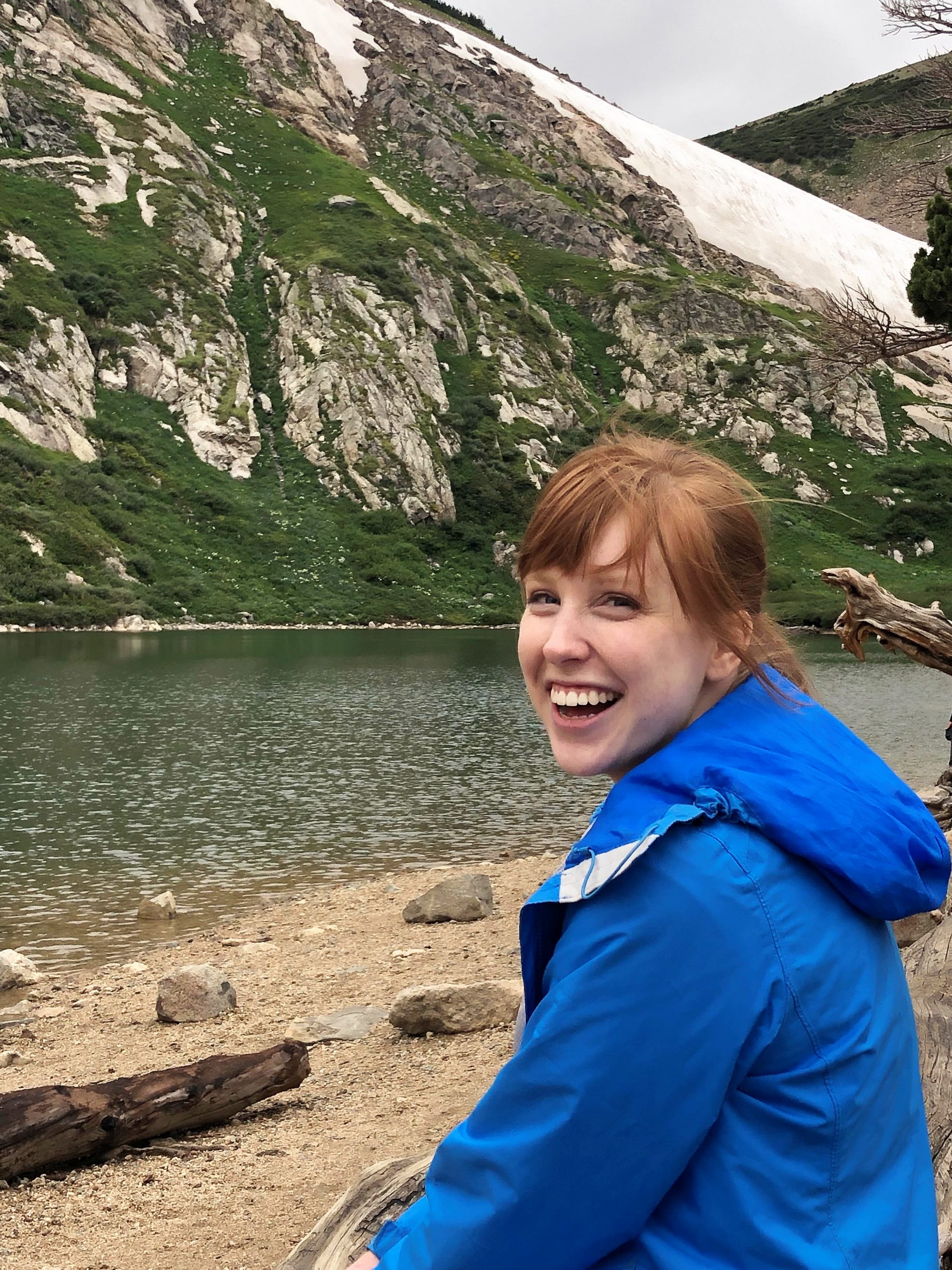By Allison Klimesh, Mercy Volunteers Corps alumna
When I told my parents that I wouldn’t be eating any meat anymore, they told me that I was grounded. Growing up in Winneshiek County Iowa, where 85 percent of our 440,000 acres is farmland, and residents are outnumbered by livestock 8.5:1, vegetarians are not seen in a very positive light.
I was taking a college biology class through my high school at the time, and my teacher had mentioned briefly that the only reasonable argument he could see for being vegetarian was the environmental impact of our meat consumption in the United States. My interest piqued.
With my teacher and the power of the internet aiding my eagerness, I learned a lot more about the science behind how energy is transferred from the sun, to plants, to animals, to us—which is to say, not very efficiently. Only a small fraction of the solar energy that a plant absorbs is ultimately converted into energy stored as sugar. When livestock subsequently eat those plants, they only convert a small fraction of that stored sugar to meat. A tremendous amount of resources—including electric and thermal energy, water and gas— is spent growing crops to feed livestock. Even more resources are necessary to care for the livestock themselves. Still more resources are needed to butcher livestock and process the meat. I began to think that it would just be more environmentally economical to cut out the middle-man—or middle-animal in this case—and switch to a plant-based diet.
When I began my herbivore lifestyle, I was mostly concerned with saving resources in order to decrease humanity’s impact on the environment and to ensure there would be enough for our human and animal decedents in the far future. Eventually, I learned about the amplified effect that climate change has on already stressed and impoverished communities around the globe, where poor harvests can increase the number of people experiencing hunger, poverty and displacement. It isn’t just a problem for the distant future, it’s a problem now. I began to understand that the depletion of Earth’s resources is a personal, environmental and social justice issue. I felt like I had a religious obligation to do something to care for the people already suffering from the effects of our ecological laxity.

I was a sophomore in college when Pope Francis released Laudato Si’, officially making caring for the environment a spiritual issue as well. I attended Loras—a Catholic diocesan liberal arts college in Dubuque, Iowa—so, naturally, when the document was released, there was a lot of talk on campus about what we as a community and as individuals should be doing to “care for our common home.” The answer was always: more.
I was discussing a paper with one of my Loras professors, and our conversation somehow turned to climate change. She asked me if I really thought that my being a vegetarian was going to save the planet. I didn’t, and don’t.
I do think that not eating meat gives me the opportunity to be an advocate for the environment, and for my brothers and sisters across the globe who are dealing with the acute reality of climate change. I think that advocating a vegetarian lifestyle might cause others to consider the impact that their habits have on the environment, reduce the amount of meat and dairy they consume, and in turn become advocates themselves.
My parents never officially released me from my punishment, but when my mom came back from the grocery store two weeks later and silently put a few boxes of veggie burgers in the freezer, I took it as a sign of their resignation. I haven’t managed to convince my parents to join me yet, but my Mercy Volunteer Corps family has given me a lot of support. During my year of service in Pittsburgh, my community members decided that as a way to live out the tenet of simplicity in our house, all of our community meals would be vegetarian. In fact, it was very rare that we even purchased meat. It was so affirming to have the opportunity to live in a community that was conscious of the impact its food choices have on the environment, and I am excited that my wider Mercy community is looking for ways to be more sustainable, too.
I think that there is always more that can be done, but if everyone does something—even if that something is just starting by buying meats that are more sustainable, like chicken and fish, or giving up meat on Mondays—we’re off to a good start.
“[…] dare to turn what is happening to the world into our own personal suffering and thus to discover what each of us can do about it.”
— Laudato Si
Alison Klimesh is a Mercy Volunteer Corps alumna who served at Pittsburgh Mercy Health and worked at the mobile clinic that served the homeless population. During her year of service, Alison was so inspired by her coworkers at Mercy Hospital that she applied to medical school and currently attends Carver College of Medicine in her home state of Iowa.